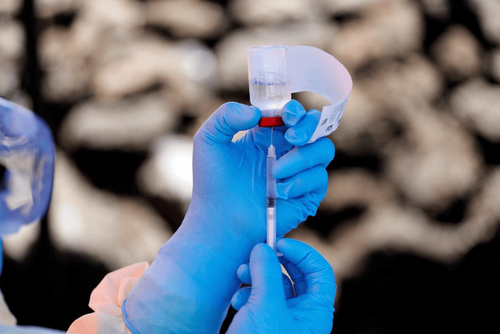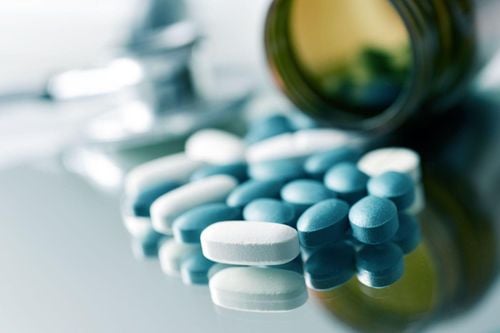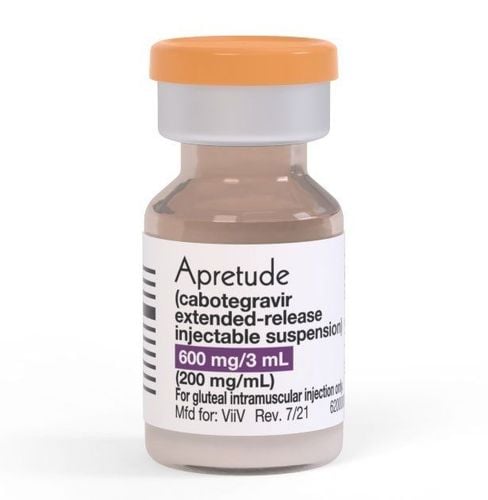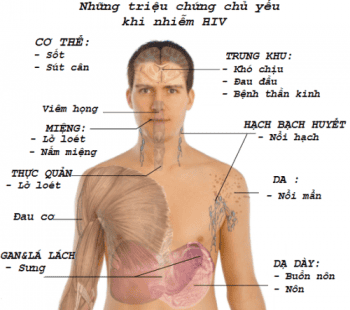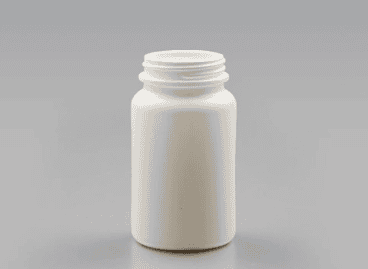This is an automatically translated article.
Cases of accidentally stepping on sharp objects with blood, suspected HIV infection is not uncommon. So what should be done to prevent and avoid the risk of HIV infection?1. Situations where HIV infection should be suspected
In case of accidental needle stick in person while walking on the street, a needle under a chair in a public place, stepping on a blood-stained needle in a park or being attacked by something sharp on the street, causing wound on the skin, the possibility of HIV exposure should be considered. Many people, when faced with such situations, are very confused and worried about what to do when they suspect HIV infection, whether they are at risk of being infected with HIV or not.If a person is accidentally stabbed by a needle or sharp object with blood, that person is considered to be in HIV exposure, which means there is a possibility of HIV infection. As such, initial treatment is very important and patients with suspected HIV infection should receive exposure prophylaxis as soon as possible.
2. What to do when HIV infection is suspected?
Usually, when stabbed by a sharp object with suspected blood, the victims will be extremely scared and afraid, so they will try to squeeze the blood out. This treatment is completely wrong and dangerous, because massaging the wound will inadvertently create more inflammatory lesions, increasing the risk of HIV virus entering the body.First, the victim suspected of being infected with HIV must regain composure and handle the following steps:
Quickly remove sharp objects that cause bleeding wounds from the body (if any). Immediately wash the wound under running water. Avoid performing hemostatic manipulations or seal the wound immediately, but let the wound drain itself for a short time, absolutely do not squeeze the wound. Thoroughly wash the wound again with soap and water. Then go to a health facility immediately to be checked, do HIV testing and exposure treatment.
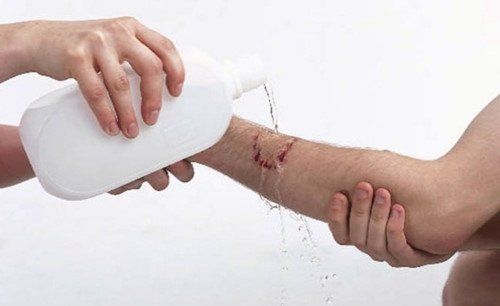
Rửa kỹ vết thương chảy máu bằng nước sạch
3. What is the risk of HIV infection from the wound?
When going to the medical facility, the victim will be assessed for the possibility of HIV infection from the wound. If it is a superficial lesion of the skin that does not cause bleeding or has little bleeding, or the blood and body fluids of an HIV-infected person only come into contact with an unaffected mucosal area, the risk of infection is relative. short.
Particularly for cases where the skin is damaged deeply, widely, with a lot of blood, or the blood and body fluids of an HIV-infected person come into contact with the skin and mucous membranes that are already damaged by extensive ulcers, the risk of infection is high. HIV infection is relatively high, requiring prompt and timely treatment.
4. What test should I do if I suspect HIV infection?
First, the victim needs to have a blood test to check for possible HIV infection. At the same time, exposure therapy can be started even if the test results are not available. However, when a positive HIV test result is received, meaning that the victim has been infected before, exposure therapy must be stopped immediately.In addition, the doctor will order some other necessary tests to monitor the treatment process, such as bloodogram, liver function test, kidney function.
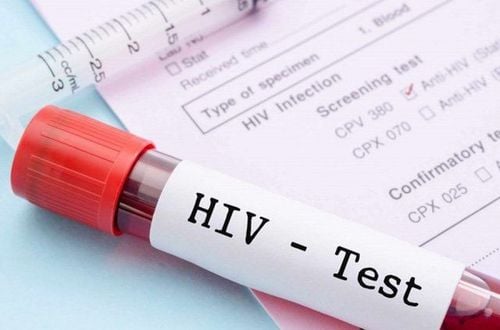
Xét nghiệm HIV khi nghi ngờ nhiễm bệnh
5. When should HIV exposure be treated?
Post-exposure prophylaxis for HIV offers very high protection. However, this effect will gradually decrease if the victim arrives at the hospital too late after the accident. Therefore, the exposed person should quickly go to a medical facility to receive treatment as soon as possible, should not be late than the allowed time of 72 hours.
The duration of HIV exposure prophylaxis must be continued for 28 days. Treatment drugs are usually oral drugs, used according to a combination regimen of 3 antiviral drugs under the guidance of the Ministry of Health.
6. Precautions when treating HIV exposure
HIV exposure prophylaxis must be prescribed by specialists or physicians trained in the care and treatment of HIV patients. Victims suspected of being infected with HIV should not be too worried to buy drugs to use on their own. Antiretroviral drugs can cause some unwanted effects during the first time of use, then the body will get used to it, so patients should absolutely not stop taking the drug without the prescription of the doctor. doctor.
Victims will be fully counseled on: Risks of HIV infection, benefits of exposure treatment, side effects of treatment drugs, methods of preventing HIV transmission to others, compliance issues. treatment and psychological support.
In addition, the victim needs to repeat HIV testing 3 months after exposure or risk factors. In the event that the test result is negative, the victim can rest assured that there was no HIV infection in the previous accident situation. In all cases, victims during treatment need to keep in touch with medical facilities for support and advice whenever necessary.
Please dial HOTLINE for more information or register for an appointment HERE. Download MyVinmec app to make appointments faster and to manage your bookings easily.




